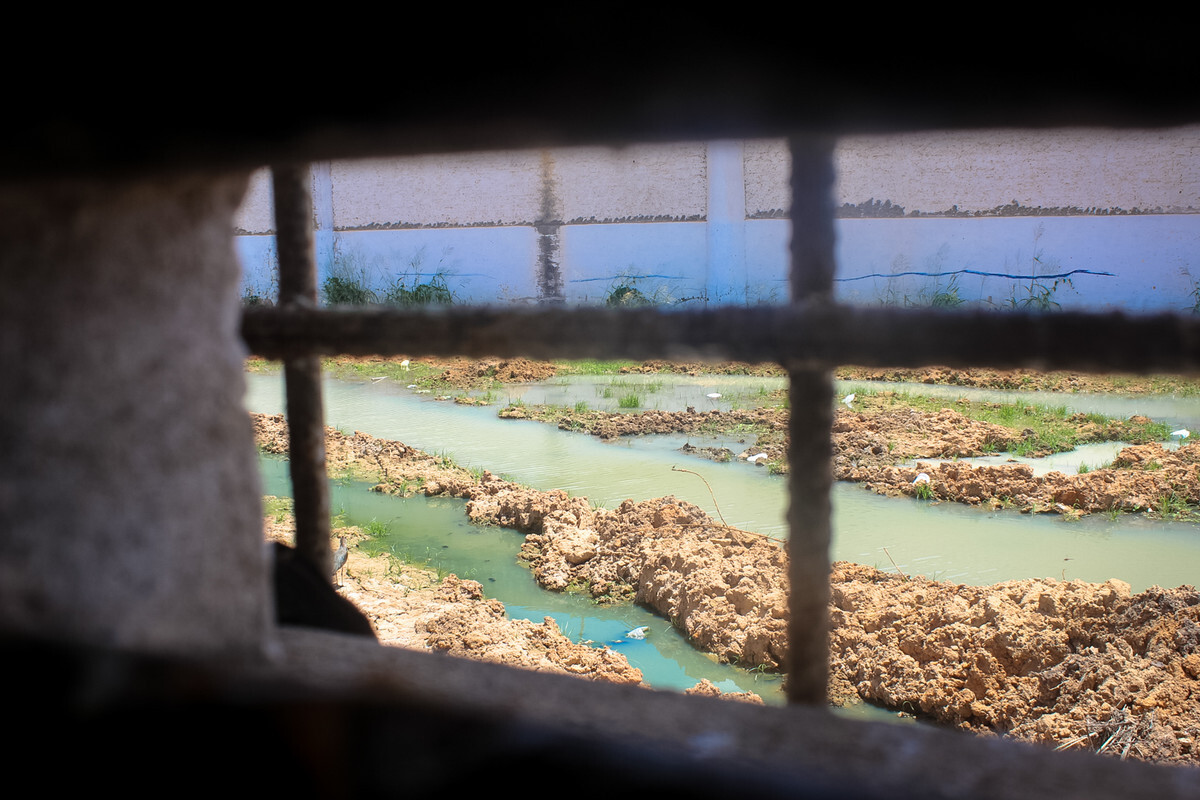Unsanitary conditions, overcrowding and lack of healthcare favor epidemics in prisons
Persons deprived of liberty are among the most vulnerable groups to the novel coronavirus
 Open sewers next to the cells where prisoners are held at the Monte Cristo Agricultural Penitentiary, located in Boa Vista, in the state of Roraima
Open sewers next to the cells where prisoners are held at the Monte Cristo Agricultural Penitentiary, located in Boa Vista, in the state of Roraima
In early July, the case of Lucas Morais da Trindade exposed some of the failings of the Brazilian prison system. Besides the arbitrary enforcement of the Drug Law, which incarcerated the young black man, aged 28, for two years for possession of 10 grams of marijuana, Trindade’s death from Covid-19 inside Manhumirim Prison, in the state of Minas Gerais, revealed the risks to the Brazilian prison population – the third largest in the world – of the novel coronavirus pandemic.
As the G1 news portal notes, Brazil has an incarceration rate of 335 per 100,000 inhabitants, a fact that should not be ignored by anyone wanting to contain the spread of the virus.
Treatment of diseases in Brazilian prisons
Whereas violence is the leading cause of death among young people around the world, inside prisons the threat of death is from a different cause: treatable illnesses. A study by the research institute Fiocruz, conducted by the doctor Alexandra Sánchez, found that of the 1,119 deaths registered in Brazilian prisons in 2017, 61% were from illnesses caused or compounded by overcrowding, poor hygiene conditions, excess humidity and lack of ventilation in prison cells, in addition to the lack of healthcare.
At the beginning of the year, for example, an outbreak of pyoderma attacked the skin of inmates at the Monte Cristo Agricultural Penitentiary in Boa Vista, in the state of Roraima, drawing the attention of the IACHR (Inter-American Commission on Human Rights). In addition, a report by the Pública agency using information from the Ministry of Health revealed that, in 2018, more than 10,000 detainees were diagnosed with tuberculosis in Brazil, a figure that is 35 times higher than among the non-prison population.
The coronavirus epidemic, therefore, compounds the already fragile health conditions of persons deprived of liberty, making them one of the most vulnerable groups to Covid-19.
“It is predictable that we will have a worse result among persons deprived of liberty. Unfortunately, given our standard of social functioning, ethics and morality, this is not viewed as a problem. And the efforts of the Ministry of Health and the Ministry of Justice or the Judicial Branch are not directed at protecting the people in their custody,” the doctor Francisco Job Neto told the Rede Brasil Atual news portal. Neto is a researcher for the Federal University of Espírito Santo who studies the epidemiology of infectious diseases in the prison system.
Unlike what some have suggested – such as former minister Sérgio Moro, who claimed that the very isolation of prisoners provides them with relative safety from the virus – detainees are vulnerable to infection, even when imprisoned and without receiving visitors. This is why the WHO (World Health Organization) has emphatically declared that efforts to contain the novel coronavirus pandemic (Covid-19) in society will fail if the same care is not taken inside prisons.


